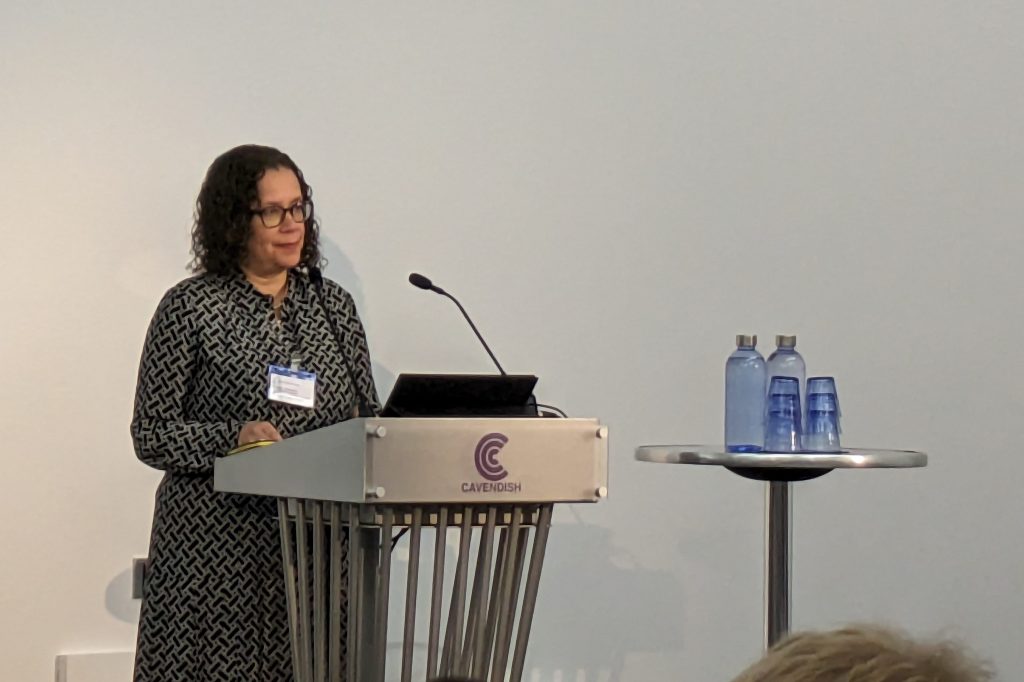Therese Chambers, the FCA’s joint executive director of Enforcement and Market Oversight, joined Emma Sutcliffe, head of the Disputes and Investigations Group and Tom Makin, associate at Simmons & Simmons, for a discussion on the FCA’s new approach to publicising enforcement investigations, as set out in CP24/2.
The first article looks at the consultation’s headline proposal – the FCA will make public announcements that it has opened an investigation into a firm and then provide ongoing publication of updates on that investigation including the closure of that investigation.
Key takeaways
- Deadline for submission of a response to the consultation has now been extended by two weeks until April 30.
- The real point of enforcement is to create a deterrent because it is through that means that the FCA can change behaviors across industry rather than simply punish a single wrongdoer.
- In deciding whether to publicize a case, the FCA is proposing to operate a public interest test that has been formulated by reference to its statutory objectives.
- Publicity notices will be shorter than decision notices, a single side of a page.
- The FCA does communicate with firms via Dear CEO letters, Market Watch and thematic reviews but by necessity these are at a quite a generic level. Publicizing an individual case allows the FCA to provide more specifics.
- In deciding whether to publish, the FCA will look at all the facts and circumstances of the particular investigation which means there will be some consideration of impacts on and detriment to the firm.
- The FCA will not automatically announce every single investigation it opens.
- In the event the FCA closes with no further action, it will give equal publicity to that closure.
Questions to Therese Chambers
What do you think this proposal aims to achieve and how you see it as furthering the FCA’s statutory objectives?
“Bringing individuals and firms to justice is an important part of the FCA’s enforcement activity but the real point of enforcement is to create a deterrent, because it is through that means that we can change behaviors across industry rather than simply punish a single wrongdoer.
“Penalties need to be proximate to the misconduct in order to have the most impact and it is important that outcomes be as timely as possible. We’re conscious that we need to speed up our investigations with thought to the transparency around our investigations. The current approach is very restrictive and we may only display details of our investigations in exceptional circumstances.
“This can be very unsatisfactory for us when we are seeking to explain our activity and to educate industry about areas of concern. It can also be very unsatisfactory for the public, to Parliament and those committees and other bodies that hold us to account. And so, we decided that the time was right to take a fresh look.
“The FCA is proposing to operate a public interest test that has been formulated by reference to its statutory objectives.
“We will be able to amplify the deterrent impact of our work by educating firms at an earlier point in time than we are currently able to do.”
Therese Chambers
“Importantly, this is not a blanket approach. There is no presumption in favor of publicity. And there is no rubric as to what we will publish. What we are proposing is very much a case-by-case approach, where we will give active consideration in relation to every investigation as to whether it is in the public interest.
“We think that by moving to this new approach, we will be able to amplify the deterrent impact of our work by educating firms at an earlier point in time than we are currently able to do.
“Operationally, it will help us as it will encourage witnesses and whistleblowers to come forward, which we think will also help us to speed up our investigative work.
“Now, a lot of concern has been raised around the potential impact on reputation and the potential impact on share price. We have said that we will look at all facts and circumstances in making these decisions. which of course means that we will consider questions of impact. But the key issue is what is in the public interest and it may be that the public interest in making a disclosure will be will outweigh the potential impact to a farm.
“In the rare circumstances where we ourselves have announced investigations, or the slightly more common circumstance while firms who are listed in this jurisdiction or elsewhere have themselves made disclosure of investigations, we have not typically seen significant market impact but we would welcome people’s views and people’s data and evidence on that point.”
How does the deterrent impact work in practice?
“We know that all practitioners study our enforcement notices with care and pay attention to the detail to work out whether there are lessons that they need to learn, and what change they need to make in their own firm.
“This is part of the broader changing of behaviors and raising of standards that is the consequence of impactable deterrents. Giving publicity to that opening of an investigation will shine a light on the types of issues that are regarded by the regulator as sufficiently serious to warrant that opening of an investigation.
“Now of course we’re not going to give the same amount of detail as we set up our decision notices that are often more than 50 pages long, we’re looking at something that is much shorter – one page.
“The aim will be to give a sufficient indication of the scope of the investigation and enable the FCA in-house teams with their external advisers to examine whether there is something that they need to look at upfront, rather than waiting for a number of years for the investigation to conclude.”
Do you think the fact of opening an investigation will inspire firms to do more beyond what is already published?
“The short answer to this is yes. So we do communicate a lot with industry and we do a lot to be really clear about the standards. We expect to give details of good practice and core practice. We write Dear CEO letters to specific sectors drawing issues to the attention of firms. So there is a lot of communication there, but necessarily that is a quite a generic level.
“We think identification will be of benefit to firms in examining their own practices. It goes beyond what can be achieved in the more anonymized thematic outcomes that come from supervision.”
What is the benefit of naming a firm versus naming the issue?
“It sharpens the focus. It’s often relevant to know precisely which firm is involved, because of the nature of the business at that firm and the conduct of the sector within which it operates.
“There might be particular considerations that pertain to the business module that would be missing if we didn’t give that additional context of naming the firm.
“These decisions will be made on a case-by-case basis so what we are not saying is that we will automatically announce every single investigation that we open. But there will be cases where it is in the public interest and in service of our aim to achieve impactful deterrence to name a firm.”
What criteria would the FCA look at when deciding whether or not it should publish information about the investigation?
(In framing the question, Sutcliffe added that the impact of an announcement that a firm is being investigated will be an enormous criteria for that firm. Particularly in circumstances where that investigation hasn’t yet been concluded.)
“So I think it’s good that you ask me this question because that’s something I need to clarify here. So what we’ve sought to do is set out the public interest framework within which we will make these decisions. We’ve based that framework on our statutory objectives because we think it is those objectives that define the public interest for us.
“We will of course look at all the facts and circumstances of the particular investigation which necessarily means there will be some consideration of impacts on and detriment to the firm.
“We do take responsibility for this because we try to draft it in a way that we think is logically coherent but I think not everybody has read it in the way that we intended it to be read.”
Are you just hanging people out to dry before you’ve actually had an opportunity to explain the details and the facts?
“I need to give some assurance here. We are not proposing to publish a sensational press release. What we’re proposing is, frankly, quite a boring but factual and balanced presentation of what is in the scope of the investigation. It will, of course, come plastered with a very large disclaimer to say that this is the start, there have been no findings. And in the event that we close with no further action, we will give equal publicity to that closure.”
With regards to pre-enforcement requests for information, for example under FSMA S165, do you think firms may delay in supplying the information as they may worry about it leading to a publicity notice?
“Withholding information would be a very unwise approach for a firm to adopt. Firms have clear regulatory obligations to notify us of relevant issues promptly and to respond to the information requirements.”
Interview questions by Emma Sutcliffe.












